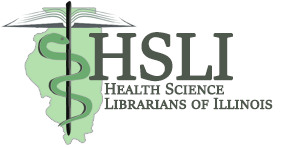Federal
In October, the White House published the “Blueprint for an AI Bill of Rights: Making Automated Systems Work for the American People”. This is NOT a legal document, but is a strong indicator of which elements of artificial intelligence will be prioritized for policy making.
On November 28, 2023, the U.S. Department of Health and Human Services and U.S. Department of Education issued a joint-policy statement that reaffirms support for the inclusion of children with disabilities in early childhood programs. For a local perspective, page 17 highlights some of the initiatives that Illinois has previously undertaken to support this inclusion.
Do you work with clinicians and/or in a hospital setting? Biden just released a fact sheet of 30 actions that are intended to address supply chain issues affecting the nation. These have not yet been litigated, but you can expect to see them addressed in the near future! Some of these actions are intended to develop a national supply-chain data-sharing platform, mitigate drug shortages, and strengthen our international alliances.
Illinois
This is a reminder to take a look at Legiscan where you can track bills and resolutions through the legislative process. A couple of Illinois items of interest are:
House Bill 4239 – INSTITUTIONAL RACISM IN MED ED – Amends the Medical School Curriculum Act. Provides that, for medical students who, on or after the effective date of the amendatory Act, matriculate into a medical school that is subject to the Act, the minimum required curriculum shall also include a medical humanities course that covers, among other things, the effects of institutional racism on medical education, medical research, and medical care in the United States. – Filed 11/28/2023
Senate Bill 78 – DHS-OVERDOSE PREVENTION SITES – Amends the Substance Use Disorder Act. Requires the Department of Human Services to (i) establish a new intervention license category entitled “OPS Harm Reduction Services”, (ii) establish standards for entities to become licensed under the OPS Harm Reduction Services category, and (iii) create a licensing application process. Provides that, notwithstanding any other law, ordinance, or regulation, any entity licensed as an OPS Harm Reduction Services provider may operate an overdose prevention site as authorized by the Department. Requires the Department to make a determination as to whether to approve an entity’s application for an OPS Harm Reduction Services license within 4 weeks after the date upon which the entity submitted its application to the Department. Requires the Department to help educate local communities and public and private entities about overdose prevention sites and the evidence regarding the benefits of overdose prevention sites. Requires entities approved to operate an overdose prevention site to, at a minimum, provide a hygienic space where participants may consume pre-obtained substances, maintain a supply of naloxone and oxygen on-site, employ staff trained to administer first aid to participants who are experiencing an overdose, provide secure hypodermic needle and syringe disposal services, encourage drug checking or the use of fentanyl test strips, and other services. Requires licensed entities to submit a report to the Department on the number of participants who have received or are receiving services at the overdose prevention site and other matters. Grants immunity from civil or criminal liability to specified persons. Preempts home rule powers. – Currently adding co-sponsors
